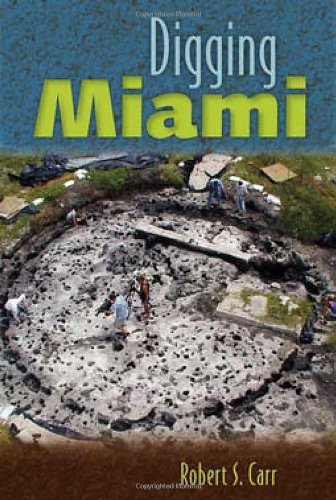

Most ebook files are in PDF format, so you can easily read them using various software such as Foxit Reader or directly on the Google Chrome browser.
Some ebook files are released by publishers in other formats such as .awz, .mobi, .epub, .fb2, etc. You may need to install specific software to read these formats on mobile/PC, such as Calibre.
Please read the tutorial at this link: https://ebookbell.com/faq
We offer FREE conversion to the popular formats you request; however, this may take some time. Therefore, right after payment, please email us, and we will try to provide the service as quickly as possible.
For some exceptional file formats or broken links (if any), please refrain from opening any disputes. Instead, email us first, and we will try to assist within a maximum of 6 hours.
EbookBell Team

0.0
0 reviewsThe pace of change of Miami since its incorporation in 1896 is staggering. The seaside land that once was home to several thousand Tequesta is now congested with roads and millions of people while skyscrapers and artificial lights dominate the landscape.
Ironically, Miami’s development both continually erases monuments and traces of indigenous people and historic pioneers yet also leads to the discovery of archaeological treasures that have lain undiscovered for centuries. In Digging Miami, Robert Carr traces the rich 11,000-year human heritage of the Miami area from the time of its first inhabitants through the arrival of European settlers and up to the early twentieth century.
Carr was Dade County’s first archaeologist, later historic preservation director, and held the position at a time when redevelopment efforts unearthed dozens of impressive archaeological sites, including the Cutler Site, discovered in 1985, and the controversial Miami Circle, found in 1998. Digging Miami presents a unique anatomy of this fascinating city, dispelling the myth that its history is merely a century old.
This comprehensive synthesis of South Florida’s archaeological record will astonish readers with the depth of information available throughout an area barely above sea level. Likewise, many will be surprised to learn that modern builders, before beginning construction, must first look for signs of ancient peoples’ lives, and this search has led to the discovery of over one hundred sites within the county in recent years. In the end, we are left with the realization that Miami is more than the dream of entrepreneurs to create a tourist mecca built on top of dredged rock and sand; it is a fascinating, vibrant spot that has drawn humans to its shores for unimaginable years.